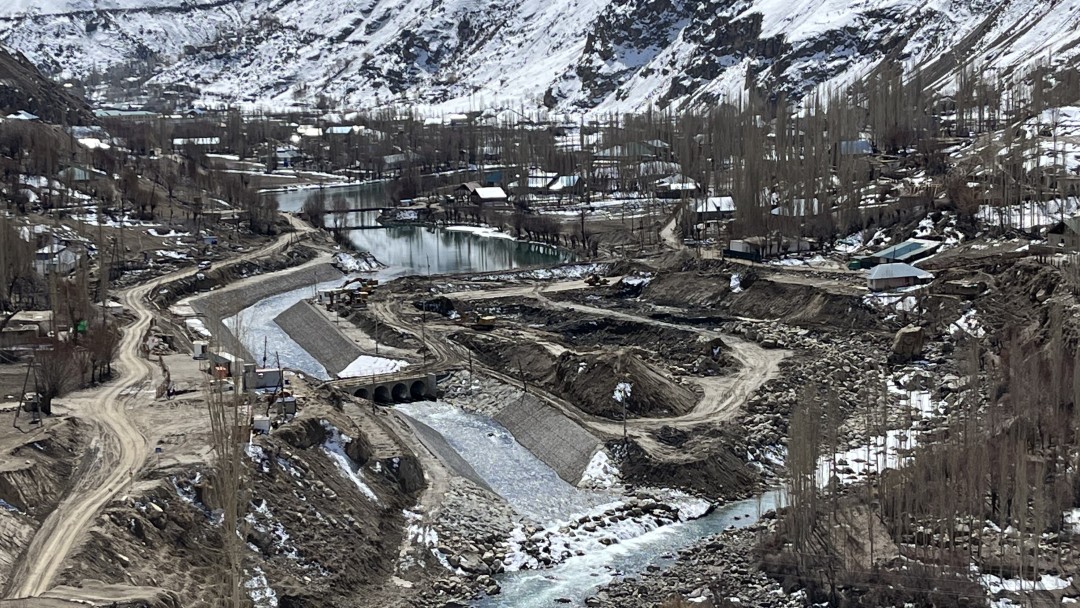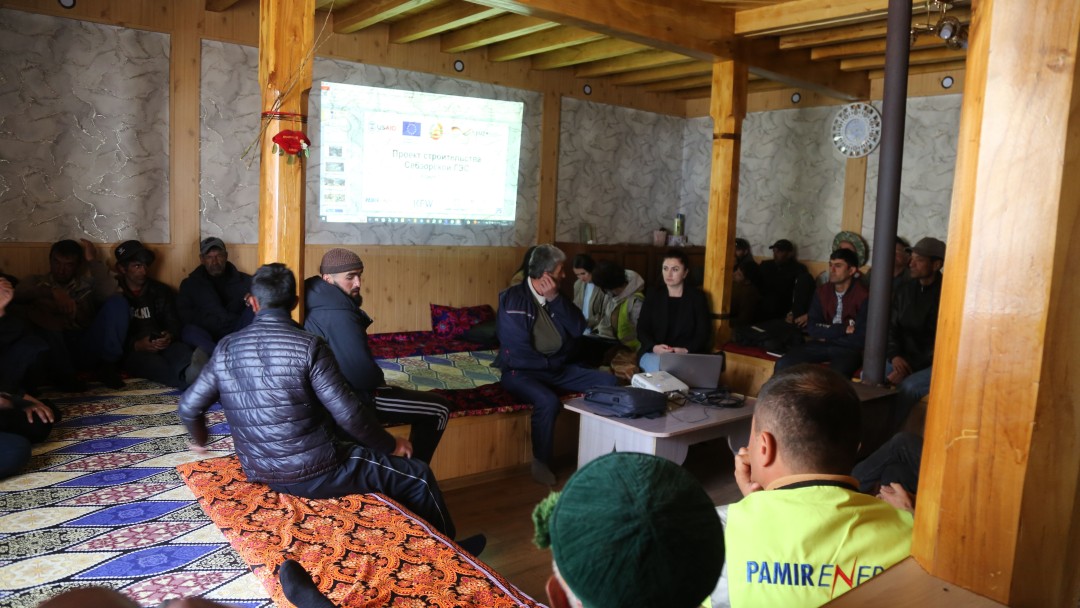News from 2023-09-27 / KfW Development Bank
Generating sustainable electricity between mighty mountains
A new hydropower plant in Tajikistan was the first in the world to be certified under the Hydropower Sustainability Standard. It will provide around 300,000 people with a reliable, environmentally and socially sustainable electricity supply and will have positive economic effects for the population.

A fascinating, barren landscape: the province of Mountain Badakhshan in eastern Tajikistan is characterised by river gorges, high rocky ridges, valleys and mountains, some of which lie at an altitude of up to 7,000 metres. But for the people, life in this remote area is often not easy: the population as well as the infrastructure are increasingly affected by natural disasters due to the extreme climate and a rugged topography, which also affects the power supply. Floods, landslides and avalanches regularly cut the province off from the rest of the country and interrupt the power generation by the two largest hydropower plants, both located on the Gunt River.
The new run-of-river power plant "Sebzor", which is being built on the Shokhdara River with financial support from KfW Development Bank and the European Union totalling EUR 63 million, is intended to remedy this situation: "With the construction we want to help ensure that the local population is supplied with sustainable, reliable and affordable energy," says KfW portfolio manager Robert Roßner.
The power plant will provide 11 megawatts of power and supply private households, commerce, trade, industry and public administration with electricity. The project executing agency is Pamir Energy. In addition to the approximately 240,000 people in Nagorno-Badakhshan, around 55,000 people in neighbouring northern Afghanistan will also benefit.
The population is involved and benefits on several levels
Increased electricity generation will also boost the economic development of the area - new jobs will be created and people will earn a higher income. This will also improve educational opportunities, health care and the food situation. So far, residents there are among the poorest in the country. "The electricity tariffs are subsidised so that they are also affordable for the poorer people," Roßner explains.
In the sense of a "feminist development policy", women in particular benefit from the more readily available electricity, as they will in future have to spend less time collecting firewood for heating with classic stoves, still mainly a task for women in Tajikistan. In addition, the funding of scholarships to support young women from the region was agreed with Pamir Energy.

Nevertheless, the construction is an intervention in nature and the course of the river. An "Environmental and Social Management Plan" (ESMP) in accordance with World Bank standards is therefore intended to help limit the encroachment. The plan provides for a minimum ecological flow in the natural riverbed and a fish ladder that will further open up the river for living creatures.
The project also subscribes to the "Just Transition" principle - there should be no social hardship for the population due to climate-friendly power generation: the construction required the resettlement of 17 households with over 100 people, it will destroy several hectares of farmland and affect trade in local shops. For 35 families whose land use will be restricted by the new power plant, support and compensation measures will be worked out together with the families to restore their livelihoods.
Marco Leidel, environmental and social expert from KfW’s Competence Center for Environmental and Social Sustainability, emphasises: "Thanks to the close cooperation between Pamir Energy and KfW, the project was successfully implemented in a socially responsible manner. KfW financed the resettlement of the households, several households received houses in a new settlement area and the resettled families were compensated. The entire process was closely accompanied by international experts".
The extensive environmental and social sustainability programmes have also led to the hydropower plant being the first in the world to be certified under the Hydropower Sustainability Standard of the International Hydropower Association (IHA). "This officially confirms and recognises the concept of the power plant with regard to sustainability, according to the international standard," says Marco Leidel. The award is also confirmation that projects developed in accordance with KfW's sustainability guidelines contribute to the successful implementation of the SDGs.

Share page
To share the content of this page with your network, click on one of the icons below.
Note on data protection: When you share content, your personal data is transferred to the selected network.
Data protection
Alternatively, you can also copy the short link: https://www.kfw-entwicklungsbank.de/s/enzBWrMC.C-xA
Copy link Link copied